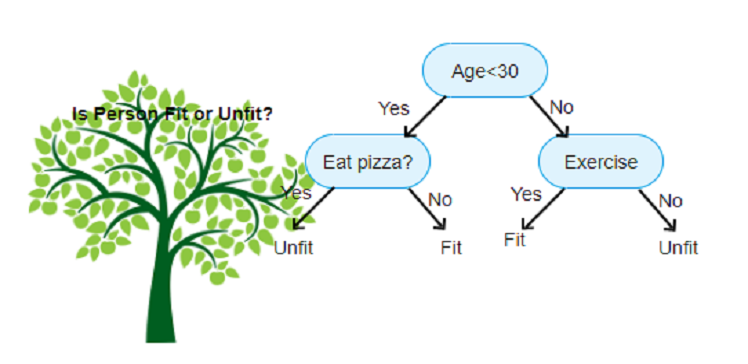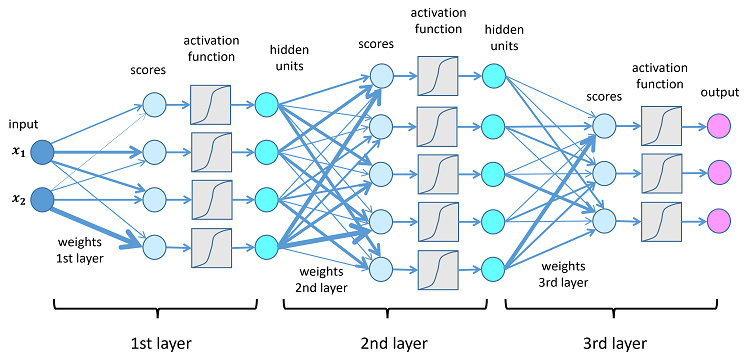- 31 Airport Road, by Old Airport, Delta, Nigeria
- [email protected]
The Future of SEO if ChatGPT Kills Search Engines

The Future of SEO if ChatGPT Kills Search Engines
Description:
With AI evolving rapidly, especially in the form of conversational models like ChatGPT, the SEO landscape is facing a potential upheaval. How will SEO adapt if AI models start to replace traditional search engines?
Currently, search engines are the foundation of SEO strategies, directing users through search algorithms and web links. But conversational AI changes the game, delivering direct, context-aware answers, possibly bypassing the need for websites altogether.
This article explores the future of SEO in a world where AI might challenge traditional search engines, covering potential shifts in search behavior, emerging SEO techniques for AI, and what businesses should start preparing for.
Introduction: The Current Landscape of SEO
The SEO landscape today is built around search engines like Google, which currently dominate how people access information online. This relationship between search engines and SEO drives web traffic, shapes user behavior, and defines best practices for content creators, marketers, and businesses alike.
But with the advent of conversational AI models like ChatGPT, we might be on the brink of a new era in search and content discovery. Unlike traditional search engines that serve up links to websites, AI models can respond directly to user questions with detailed, context-aware answers. This shift has the potential to disrupt the role of search engines and, consequently, the foundational strategies of SEO. So what does the future of SEO look like if AI models take center stage?
1. How ChatGPT and AI Models Could Replace Search Engines
The Impending Impact on Search Engines and SEO
Conversational AI models like ChatGPT rely on large language models (LLMs) to understand and respond to complex queries. With advanced natural language processing (NLP) capabilities, these models can answer questions, provide recommendations, and engage in meaningful dialogue. Here’s why this matters:
Direct Answers Over Links: Unlike search engines that present users with a range of clickable options, ChatGPT delivers a single, synthesized response that doesn’t require users to sift through multiple sites. This shift has already started to attract users who prefer streamlined answers over endless links.
Instant, Context-Aware Responses: ChatGPT remembers the context of previous queries within a session, allowing for more personalized and nuanced answers. This capacity for conversational flow marks a sharp difference from the keyword-driven responses that search engines provide.
Use Cases for Conversational AI: Whether it’s quick answers, troubleshooting, or even making purchasing decisions, many scenarios align naturally with ChatGPT’s conversational style. Users could soon opt for this “one-stop” approach to satisfy a wide range of needs, potentially decreasing reliance on traditional search engines.
If more users turn to AI-driven models, the way businesses approach SEO may require a fundamental shift. Instead of focusing on SERPs (Search Engine Results Pages), optimization could revolve around making content accessible and relevant to these AI models. In other words, the structure, quality, and format of information might start taking precedence over traditional SEO practices like keyword optimization and backlinks.
2. The Changing Nature of Search Behavior
Real-Time Data and Dynamic Responses
As users increasingly experience the convenience of conversational AI, their expectations around search experiences are likely to change. This shift could impact several aspects of search behavior:
Less Emphasis on Traditional Keyword Searches: ChatGPT understands natural language rather than relying solely on keywords, meaning that keyword optimization could become less important in the future.
Demand for Contextually Aware Responses: With AI capable of generating answers based on nuanced inputs, users might expect answers tailored to specific contexts without the need for multiple searches.
Preference for Instantaneous Results: Rather than combing through search results, users may prefer AI's ability to instantly generate precise, authoritative responses. This shift in preference could further erode the need for search engines and, by extension, traditional SEO.
While search engines index the web periodically, conversational AI models can potentially integrate real-time data, enhancing their relevance. As LLMs grow in sophistication, users might begin to depend on AI not just for static knowledge but also for real-time, actionable insights—again challenging the role of conventional search.
3. Implications for Traditional SEO Practices
Evolving Content Strategies for an AI-Driven World
If conversational AI gains traction, the core pillars of SEO could become less influential. Here’s how this transition might affect traditional SEO practices:
Keywords and On-Page Optimization: Keywords have long been a staple of SEO, but if AI models bypass keyword-dependent rankings, the emphasis on this aspect of optimization might diminish.
Backlinking: Links help determine authority and relevance on search engines, yet if AI models rely on internal data and proprietary sources, backlinks might lose their influence.
Decreased Organic Traffic: With AI-driven answers limiting click-through to actual websites, organic traffic could see a decline. Websites might need to pivot to alternative strategies to engage users directly rather than through search rankings.
Content creation could need to adapt to cater directly to AI interfaces. Rather than optimizing solely for discoverability on search engines, brands might focus on creating high-quality, well-structured content that AI models can easily process, reference, and integrate into their responses.
4. New Approaches to Optimizing for AI Models
The Role of Content Hierarchies and Hierarchical Information
To stay relevant, businesses might start to prioritize the way information is structured and organized. Here are some emerging optimization strategies for AI:
Data Feeds and APIs: AI models could pull content from structured data and APIs, making it vital for companies to provide information through these channels.
Emphasis on Structured Data: Structured data could become a major asset in AI optimization. By providing clear, labeled information, businesses could make their content more accessible and useful to AI, increasing the chances of being included in AI-generated answers.
Concise, Fact-Based Content: Since AI often seeks the most factual, straightforward responses, content that is easy to parse and information-rich may have a greater impact in an AI-dominant landscape.
Organizing content in ways that emphasize clarity and logic will become crucial. AI thrives on well-organized data, so incorporating a clear hierarchy, bullet points, and concise summaries could be a valuable practice moving forward.
5. The Role of AI-Driven SEO Tools and Platforms
Understanding AI Interactions Through Data and Feedback
With conversational AI taking on a larger role, we’re likely to see a rise in AI-specific SEO tools. These tools could focus on helping businesses understand how AI interprets, ranks, and presents information. Examples might include:
Content Structuring Tools: Software that assists in arranging content in an AI-friendly manner. AI Analytics Platforms: New platforms that provide insights into how content performs in AI environments, tracking engagement rates, user sentiment, and relevance.
As companies shift focus toward AI interactions, data and feedback will be key. AI-powered analytics tools could provide insights into user preferences and content performance across AI platforms, guiding businesses in refining their strategies.
Conclusion: The Future of SEO in an AI-Dominated Landscape
The future of SEO could be significantly reshaped as conversational AI like ChatGPT continues to advance. If AI-driven models eventually overtake search engines, SEO professionals will need to adapt by shifting focus from traditional optimization techniques to methods that make content accessible, relevant, and engaging within AI frameworks.
While change can be challenging, it also presents an opportunity for the SEO industry to innovate and evolve. As businesses begin to navigate this new landscape, adaptability and a forward-thinking approach will be essential. For those who prepare now, the age of AI-driven SEO could be a catalyst for growth and success in the digital realm.




